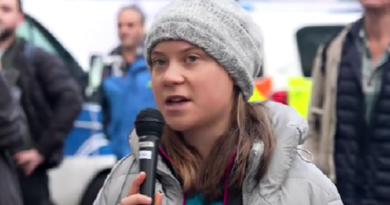Justice sought for Spain’s elderly coronavirus victims
By Belén Carreño
MADRID (Reuters) – Families for elderly Spanish coronavirus victims are initiating hundreds of compensation and criminal claims for nursing home residents who died often without hospital care in a legal morass that could affect the delicate national political balance.
Spain has been one of the worst-hit countries from COVID-19, with more than 28,000 deaths officially reported and a much higher-than-average fatality rate of six per 10,000 people.
Homes for the elderly and disabled have borne the brunt, with some 19,000 deaths, according to a Reuters tally based on regional authorities’ data and local media, leaving relatives upset and angry at refusals and delays in hospitalising patients, plus inadequate equipment.
Delimiting responsibilities between public and private bodies during a pandemic is the Gordian knot judges will have to untie in order to apportion blame, if any, for deaths.
Their decisions could lead to millions of euros in damages, feed into a global ethical debate over prioritising the young over the old, and influence the future of socialist Prime Minister Pedro Sanchez’ fragile minority coalition.
“In court, the documents will prove what we have been saying for a long time – that the health service turned its back on us,” said Ignacio Fernandez Cid, president of the Dependency Business Association (FED) which represents care homes.
“The homes have acted well, and have done what they could with the means they had,” he told Reuters.
Documents seen by Reuters show that when hospitals were swamped, regional authorities applied tough restrictions to prevent more patients coming from care homes.
In one of the worst-hit areas, Catalonia, lawyers Cremades & Calvo-Sotelo, has filed a lawsuit against the regional government seeking 150,000 euros ($168,400) for the death of one woman whom the family said received belated and negligent care.
One of the few in Spain specialized in collective actions, the firm represents a lobby group already encompassing about 80 families seeking an average of 130,000 euros for deaths in both Catalonia and the capital Madrid, another hard-hit area.
Cremades & Calvo-Sotelo said it was coordinating with another 40 firms from around Europe, including Britain, France, Italy and Germany, on similar potential action elsewhere.
“FORCE MAJEURE” DEFENCE?
Additionally in Spain, prosecutors are investigating about 430 complaints – about half criminal and half civil – against nursing homes.
Another 60 cases have gone to the Supreme Court alleging political responsibility by regional administrations and central government. Though the regions normally have healthcare responsibility, Madrid took over during Spain’s state of emergency at the height of the coronavirus crisis.
Reuters has spoken to dozens of civil movements, unions, families and law firms that also plan suits in coming weeks, though they acknowledge it could be a slow and complex process, and fear they may be stymied by a defence of “force majeure” or circumstances beyond authorities’ control.
While homes argue they were at the mercy of authorities’ regulations, central and regional governments are bickering over who retained what specific responsibilities.
“We have seen a worrying fragility in the care of our elders, at this point a collective examination of conscience is necessary,” Sanchez reflected in a speech earlier this month.
The legal push also puts insurance companies in the spotlight as they are handling many homes’ legal defence.
The suffering in nursing homes threatens to give the worst headaches to regional governments least favourable to Sanchez, such as opposition-run Madrid and independent-seeking Catalonia.
Madrid region’s president, Isabel Diaz Ayuso of the conservative Partido Popular (PP), has downplayed her decision not to deter nursing home patients from hospitals. But she acknowledged that her coalition had nearly blown up over the issue, making her consider a snap election.
The bad publicity for PP in Madrid may have been a factor in the party’s recent decision to soften its previously harsh opposition to Sanchez.
(Reporting by Belen Carreno; Editing by Andrew Cawthorne)



